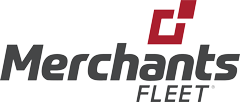
As fleet management companies become harder to differentiate with increasingly similar sets of fleet services and solutions, flexibility is becoming a key differentiator. Tom Coffey, Senior Vice President of Sales at Merchants Fleet, discusses how scalability in services, flexibility in leasing, and adaptability in client service are key for companies with fleets to have the most efficient operation. It is also how fleet companies can stay on the cutting edge, now and in the future.
Using Flexibility to Stay Competitive
The ability of a fleet company to leverage flexibility across their business depends on what types of clients a fleet company has determined they best serve—this could be based on fleet size, fleet type, industry, and/or some other factor. Several of the top tier fleet companies have identified market segments where they want to be known as the dominant provider. That can be an efficient and very profitable proposition for the business, but can also carry negative implications if industry or market conditions change significantly or quickly in a particular segment. Fleet companies that concentrate primarily in niches or narrow market bands may also be depriving their clients of new concepts and best practices outside of their fields of specialty. Subscribing to best-in-class trends by industry leaders can be limiting to impacted fleets if not blended with developments from the market at large. Ultimately, in order to serve a diverse group of clients, fleet companies must combine entrepreneurship, technology, consulting, and great relationship management cohesively in order to deliver the best possible outcomes for clients.
The New Flexibility Focuses on Technology & Data
The definition of flexibility for a fleet company not only encompasses the ability to offer a broad range of products and services, but also being able to manage, compile, and utilize data to make business decisions. In general, many top-tier fleet companies offer a similar set of core products and services. More recently, mobility has encouraged fleet companies to innovate in their offerings. Differentiation also comes into play in the technology tools and in-house consultation talent available to help clients understand how their fleets currently operate and to think about how they could function more efficiently.
Flexibility in Leasing: From Short-Term to Long-Term
There is great interest for short-term van and pickup vehicles, as well as flexibility in range and lease structure. Companies are thinking about what could be the vehicles that augment or even replace their traditional leases. Could that be buses, or vehicles that could be shared on a daily or hourly basis through a closed-circuit fleet? In the future, could we be looking at driverless vehicles, and could there be a company that connects ride sharing applications with traditional car rentals and long-term leases? Perhaps.
Flexibility in Scale: From 1 to 5,000 and Beyond
Fleet companies can add value for their clients through flexibility in terms of scale. Every client wants to feel like they fit with their fleet provider. As a partner, fleet companies have to recognize the key signs that their clients’ businesses have a promising future, even if in the early stages they don’t have much of a record. Smaller clients typically require different types of lease structures, maintenance plans, insurance, and other services. It helps to have sales, credit, and operational personnel who understand those business segments as well as others that understand large to mid-size company fleets. No fleet company can serve all customers of all sizes and needs. However, those that have developed the structures – in terms of leasing, operations, and services — and the human talent to scale to different market segments will probably be more successful at meeting the needs of different client types, regardless if they are 1 or over 5,000 vehicles.
Flexibility in Thinking & Approach
No two clients have exactly the same fleet operations, fleet makeup, operational structure, and corporate culture. Clients are often in highly competitive, fast-moving environments where their business needs are continually changing. In order to stay competitive, a fleet company must be able to adapt to changing conditions if they’re trying to be a great business partner.
Flexibility also means you have to think about what mobility and transportation in general could bring down the line. Fleet companies should also always be on the lookout for the opportunity to provide services and products that will be in demand in the future, even if they are not today. To stay relevant, fleet companies should be providing both long-term and short-term leases to their clients, both where employees have dedicated vehicles and vehicles available through a pool application. They should also be thinking about and preparing for the future, when there will be other modes of transportation that need to be blended into those services.
Flexibility in How Clients are Serviced
Another area of flexibility that often matters to clients includes the basics, such as servicing, billing, and invoicing. Each company has their own process for managing and tracking the costs associated with their fleet. A client will say they need their invoice to look a certain way because the format must match with their internal processes. When we’re asked to replicate a specific format, we work with our client to determine what they liked from their previous fleet provider, take that information, and then build on it to identify ways to better serve them. Clients also need data reporting in the format that fits their processes. It can’t be a boxed approach—it has to be flexible to the needs of the client.
Flexibility = Opportunity
Merchants Fleet has been and still is a very entrepreneurial culture where we love to come up with solutions that other fleet companies may not have thought of or are hesitant to execute. In the fleet industry, standardization and uniformity are often viewed as being key to quality control and low overhead. As we’ve hired a lot of high fleetIQ personnel from the fleet industry and integrated their industry knowledge, we see opportunities to deliver consistent performance with more variation than others are prepared to offer. Where others see risks and hazards in offering options to their clients, we see opportunities.

